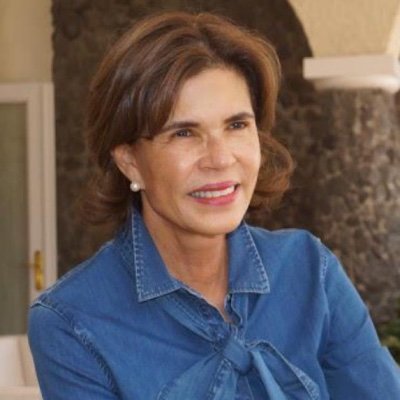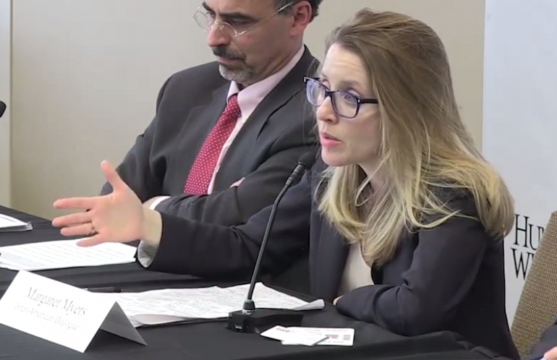A Fatal Blow to Democracy
Nicaragua is on the precipice.
A Daily Publication of The Dialogue
Nicaragua’s Citizen Alliance opposition group on May 12 registered to participate on its own in the country’s presidential elections scheduled for November. The move came despite efforts among the broader opposition to form a single coalition to oust President Daniel Ortega, whom analysts believe is likely to be re-elected if the opposition remains fractured. Did the country’s opposition groups make the right decision in not coming together to face Ortega in the upcoming elections, and how will that affect their chances of winning? What issues continue to be points of contention between the different opposition groups, and can these be overcome in the months ahead of the vote? Will the presidential election be free, fair and transparent?
Mario Arana, former president of AmCham Nicaragua: “The Nicaraguan November elections cannot be considered free, fair and transparent. The OAS’ recommendations have not been heard; quite the opposite, it seems. There are restrictions in terms of participation as well as banning of political parties and potential presidential candidates and limitations to organize meetings and, so far, rallies. The electoral authorities also lack credibility. In retrospect, by uniting with the National Coalition, Nicaragua’s Citizen Alliance—the real remaining legal and viable opposition group, from an electoral point of view—could have been banned, in the same way that the Democratic National Renovation party was banned on May 18. The Democratic National Renovation party led the National Coalition, influenced by Sandinista dissidents. It seems that this action intends to promote a low voter turnout. Others believe that Ortega is really risking everything just to remain in power, and that he will do whatever it takes to do so. Regardless, both opposition organizations are still trying to find agreement in a de facto union, and in addition they are considering a single process to choose candidates independent of the organization to which they belong. In other words, it is a real competitive selective process led by popular demand. In fact, the electoral results could well end up depending on a very high voter turnout. For that, candidates need to both inspire and be chosen in a transparent and democratic process, with citizens’ broad participation. This will be a challenge for the new Nicaragua, which is more used to a top-down approach, but perhaps it is long overdue.”
John Maisto, member of the Advisor board, former senior director for the Western Hemisphere at the U.S. National Security Council and former U.S. ambassador to Nicaragua, Venezuela and the Organization of American States: “Under current political realities and election preparations, there is no chance that Nicaraguan elections will be free, fair and transparent. The Ortega government has not missed opportunities to level the electoral playing field; in fact, conditions have worsened. The electoral tribunal could have been changed to include independent figures; the new council is entirely beholden to the Sandinistas. Opposition candidates have been disqualified, and pressures have been exerted on others, including baseless fraud charges aimed at Cristiana Chamorro. Media are under constant threat, with many outlets closed down. Political party activity is under duress, and human rights violations continue. The OAS secretary general says Nicaragua is heading into ‘the worst possible election.’ There are no signs that the government is prepared to make any changes to this approach. However, the opposition has also missed opportunities to unite under one candidate. Without a single candidate, there is no chance they can contest the election with any hope of winning. With abstention guaranteeing that Ortega wins again, the only option for them is agreement on one candidate. The sooner that happens, the better the opportunities for the Biden administration, hemispheric leaders and Europeans to weigh in with pressure for electoral preparation changes and normal international observation. Also needed is demand from Nicaragua’s business, civic and religious sectors for clean, transparent and observed elections. Without opposition, unity and citizen pressure, such outside efforts will have no chance of success, and Nicaragua’s difficulties, with impact on post-Covid and economic recovery, will go on.”
Ryan Berg, senior fellow of the Americas Program at the Center for Strategic and International Studies: “Under Nicaragua’s current police state, the conditions for free, fair and transparent elections aren’t even remotely present. The Sandinista-dominated National Assembly passed a slew of measures in contravention of the October 2020 OAS Resolution demanding electoral reforms by the end of May. These moves included a foreign agents law intended to suffocate civil society, a cybercrimes law to chill speech and a law to bar opposition candidates who support sanctions on the Ortega-Murillo regime. The regime maneuvered to ensure the election of its preferred candidates to the Supreme Electoral Council (CSE in Spanish), including individuals sanctioned by the United States. In turn, the regime-controlled CSE revealed an electoral schedule that permitted the opposition less than one week to form alliances. In recent days, the Ortega regime has leveraged its control over the judiciary to strip the legal status of opposition parties and announce spurious investigations into Cristiana Chamorro, daughter of Violeta Chamorro and a presidential hopeful with strong polling numbers and name recognition. The Ortega-Murillo regime is taking a salami slicing approach, leaving few parties remaining but those headed by ersatz regime opponents and thus accused of past collaboration. It is likely that Ortega-Murillo will find other dubious means of disqualifying or detaining any opposition candidate who emerges from a genuine unity-building process. While the opposition squabbles over how to divvy National Assembly seats among them after the election, Ortega continues what he has done for decades: electoral engineering, this time leading to the consolidation of the region’s next dictatorship.”
Jennie K. Lincoln, senior advisor for Latin America and the Caribbean at The Carter Center: “The question about unity of the two major factions (Citizens for Liberty, or CxL, and Blue and White Unity, or UNAB) is dead. Now the question is whether the opposition groups that have been left out or disqualified will rally around the CxL presidential candidate (yet to be determined). That is not a given. A continued split opposition favors yet another Ortega win, and the opposition know this. Some differences are personality driven; some are policy variations; and some stem from control of the distribution among the political parties for candidate seats in the legislature. These differences require political will and negotiation, which have not been successful so far. If the election were held under current political conditions, it would not meet international standards. Recent reforms to the Electoral Law, along with drastic laws such as the Foreign Agents Law, undermine democracy in Nicaragua. The government is using state resources to disrupt and impede open political movement and debate. The current climate has no freedom of public assembly and no free speech, including assaults on independent journalists. Freedom of opinion is hindered as evidenced by the 110 political prisoners and government repression and intimidation through legal charges against anyone who challenges it. The only way that Nicaragua will live up to its obligations for democratic elections is for the government to reverse its draconian controls on its citizens as well as the recent reforms of the electoral law, provide a transparent electoral process with domestic and international observation and allow full participation and open political debate on the future of Nicaragua.”
[Editor’s note: The Advisor requested a commentary from the Nicaraguan Embassy in Washington but did not receive a response.]
 The Latin America Advisor features Q&A from leaders in politics, economics, and finance every business day. It is available to members of the Dialogue’s Corporate Program and others by subscription.
The Latin America Advisor features Q&A from leaders in politics, economics, and finance every business day. It is available to members of the Dialogue’s Corporate Program and others by subscription.
Nicaragua is on the precipice.
What will Ortega’s landslide victory allow him to do in his next term?
How will increasing Asian investment in Latin America influence economics and politics in the region?
 Nicaraguan presidential hopeful Cristiana Chamorro // File Photo: @crischamorro via Twitter.
Nicaraguan presidential hopeful Cristiana Chamorro // File Photo: @crischamorro via Twitter.
 Video
Video